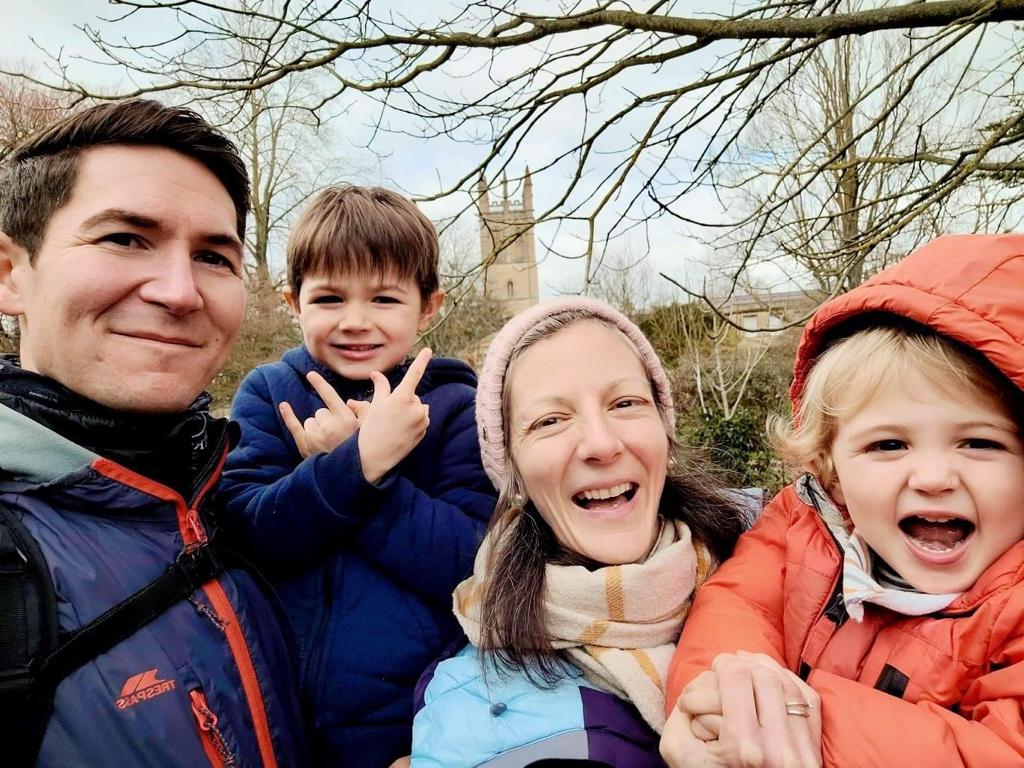
My 2.5-year journey with translocation renal cell carcinoma
This is a guest post by Dawn Dyson, 37, who was diagnosed with translocation renal cell carcinoma in 2022. Dawn was a recent speaker at the KCA’s 2024 International Kidney Cancer Symposium: Europe in Sitges, Spain on April 18-20, sharing her own kidney cancer story. She lives with her husband and two sons in England.

In September 2021, after having blood in my urine, with no other symptoms, it was determined that I had a 4cm mass in my kidney. I was 35 when I had a right partial nephrectomy in November 2021 with only a brief reprieve before receiving a stage IV diagnosis of translocation renal cell carcinoma (tRCC) the following May.
I have very dishearteningly flown through the recommended treatments on the standard kidney cancer pathway. However, tRCC is not your standard kidney cancer. It is a rare and aggressive subtype that constitutes only a fraction of all kidney cancer diagnoses, which means that we don’t know a lot about it, including how best to treat it.
I had no response to immunotherapy and in my quest for answers, I studied many clinical papers which showed the effectiveness of having a healthy gut microbiome and a healthy diet and the link with success.
The next step after immunotherapy led us to a class of drugs called tyrosine kinase inhibitors (TKIs), which worked well for some time but came with significant side effects. Unfortunately, that then meant I had to reduce my treatment dose and eventually the treatment stopped working.
Frustrated with the prognosis I’d been given and the lack of any hope, I delved into the science of my rare subtype of kidney cancer. I worked to understand the characteristics of tRCC and how to tackle the tumours, using resources like tRCC-specific scientific papers and books about cancer and nutrition (especially How to Starve Cancer by Jane McLelland), as well as support from online groups led by KCCure and Joey’s Wings.
Most recently, I was made aware of a small number of tRCC patients having a positive reaction to platinum-based chemotherapy, I had no reaction to carboplatin and etoposide but this drove us to invest in a liquid biopsy test to check how sensitive I might be to chemotherapy. Thankfully, the test was promising and showed some excellent in vitro cell death responses. My current treatment is now capecitabine, a type of chemotherapy, which I’ve had some tumour reduction with and overall stable disease – the first time in 8 months we’ve received positive news.
With rare subtypes of kidney cancer I’ve been told countless times there is no data… but now I finally have some results specific to the cancer I have and this has driven my positivity.
Over my 2.5 year journey, I’ve learnt that looking after my body, eating a low-inflammatory diet and feeding my gut microbiome is key. I truly believe this has alleviated some side effects which in turn has meant I’ve had quality time to spend with my two beautiful boys and my incredibly supportive husband.
Most surprisingly I’ve learnt to trust my body, my instincts and be the champion of my own path whilst leaning on the core team of experts around me and the wonderful support of my family, friends, and nursing team.



Receiving a cancer diagnosis was traumatic and the lack of hope has been the worst thing. But from it I’ve built resilience and a pure determination to seek out information to help me stay hopeful. I don’t know what the future holds but I know I want to be part of what’s next for kidney cancer treatments!
I’ve realised that it’s ok to question, ok to need to understand more. It’s my life, after all.
Thank you for your positive and hopeful post. My nephew also has tRCC, stage 4. Mind if I asked what stage your diagnosis? I believe he has tried all the treatments you have mentioned and is searching for a clinical trial. Interestingly , immunotherapy didn’t help him at all. His doctors do not give him much hope. He also has 2 little boys. Any info that you feel might be helpful would be much appreciated.
Thank you,
Linda
Hi Linda,
thank you for your comments on the article. I would be very happy to talk with you further if you’d like to get in touch through the KCA and they can pass you over my details.
For me the key piece of the puzzle has been understanding the mutation of the cancer and which treatments target this directly. I used a liquid biopsy for this but you son may already have the histological information.
Thanks and look forward to speaking with you.
Dawn
Great article on the benefits of regular exercise. I completely agree that staying active can improve both physical and mental health. Personally, I love starting my day with a brisk walk in the park.
Famous Cardiologist in Kakinada
Hi Linda,
Thank you for your comments on the article. Apologies that I didn’t see you had sent this until now.
I would be very happy to talk with you further if you’d like to get in touch through the KCA and they can pass you over my details.
For me one of the key pieces of the puzzle has been understanding the genetic mutation of the cancer and which treatments target this directly. I used a liquid biopsy to do a chemosensitivity test for this but your son may already have this information.
Thanks and look forward to speaking with you.
Dawn
Thanks for your comments on the article. What a great way to start the day! Being out in nature is a wonderful way to keep active.
I definitely need to do this more but it can be difficult some days with a busy family.
Dawn